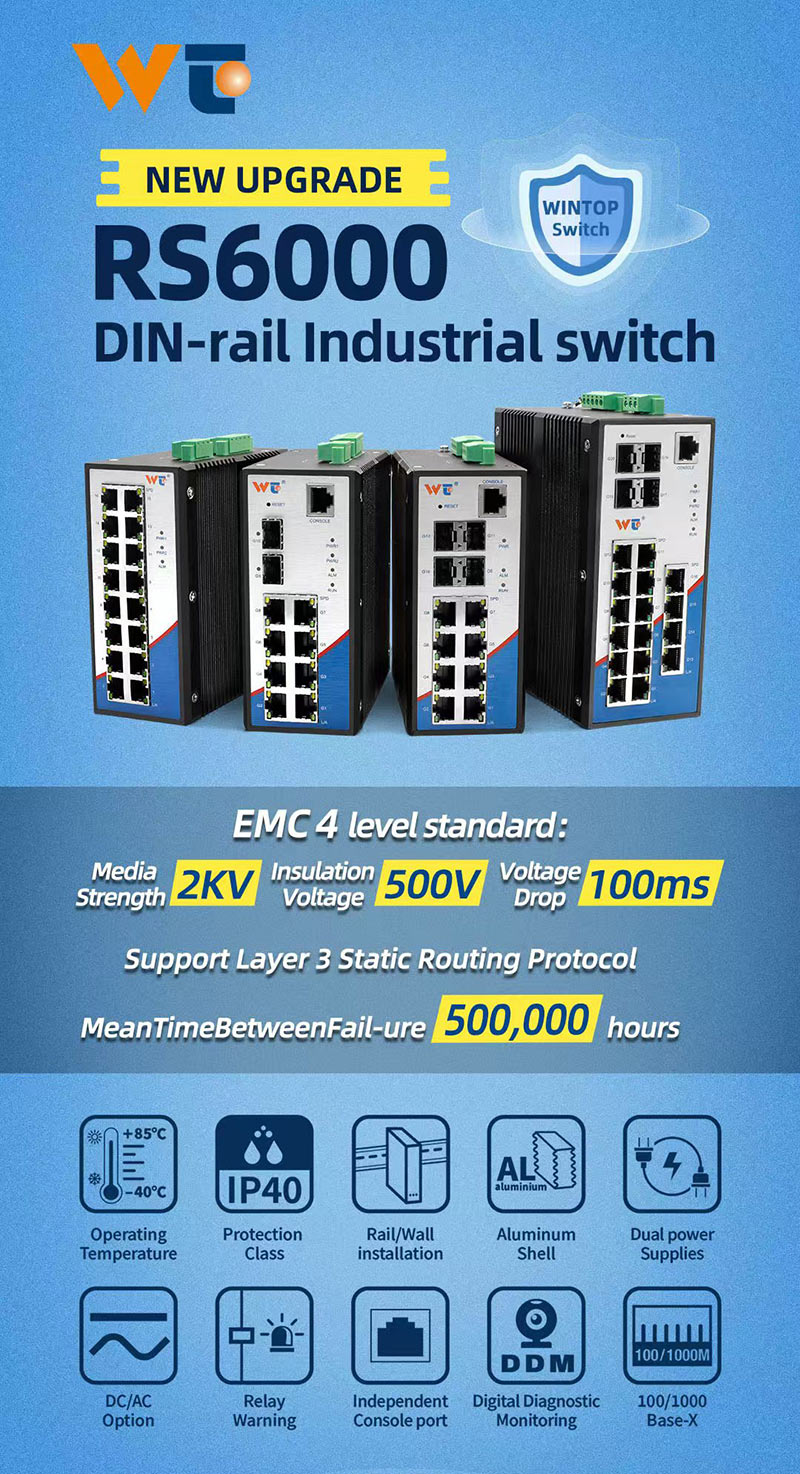Unmanaged Industrial Switches: Enhancing Network Stability in Industrial Environments
In the realm of industrial networking, where reliability and robustness are paramount, unmanaged industrial switches play a pivotal role in ensuring seamless communication and operational continuity. Designed specifically for harsh and demanding environments, these switches offer fundamental yet crucial functionalities that uphold network stability and efficiency.
Understanding Unmanaged Industrial Switches
Unmanaged industrial switches are purpose-built devices tailored to meet the unique challenges posed by industrial settings. Unlike their managed counterparts, which offer extensive configuration options and advanced features, unmanaged switches operate with simplicity and reliability as their core strengths. They serve as plug-and-play solutions, requiring minimal setup and maintenance while delivering consistent performance under adverse conditions.
Key Features and Benefits
- Rugged Durability: One of the defining characteristics of unmanaged industrial switches is their robust construction. Encased in durable metal or hardened plastic enclosures, these switches withstand extreme temperatures, humidity, vibration, and electromagnetic interference (EMI). Such resilience ensures uninterrupted operation even in challenging industrial environments such as manufacturing floors, outdoor installations, and transportation systems.
- Plug-and-Play Simplicity: Simplifying deployment is another hallmark of unmanaged switches. With no need for configuration or monitoring, these switches are ready for immediate use upon installation. This simplicity not only reduces deployment time but also minimizes the risk of configuration errors, making them ideal for applications where reliability and uptime are critical.
- Efficient Data Transmission: Unmanaged switches facilitate efficient data transmission across industrial networks. They feature multiple Ethernet ports (typically ranging from 5 to 24 ports), enabling devices such as PLCs (Programmable Logic Controllers), sensors, actuators, and other critical equipment to communicate seamlessly. Fast Ethernet (10/100 Mbps) and Gigabit Ethernet (10/100/1000 Mbps) variants accommodate varying bandwidth requirements, ensuring optimal performance for diverse industrial applications.
- Cost-Effective Networking: For industrial enterprises seeking cost-effective networking solutions, unmanaged switches offer significant advantages. Their competitive pricing combined with low maintenance requirements translates into reduced total cost of ownership (TCO) over the switch's lifecycle. This affordability makes them accessible for small to medium-sized industrial setups and large-scale deployments alike.
- Enhanced Reliability: The inherent stability of unmanaged industrial switches contributes to the overall reliability of industrial networks. By eliminating the complexity associated with managed switches, they minimize points of failure and downtime. This reliability is crucial for maintaining continuous operations in industries such as manufacturing, utilities, oil and gas, transportation, and more.
Applications in Various Industries
Unmanaged industrial switches find applications across a wide spectrum of industries:
- Manufacturing: Facilitating real-time communication between machines and control systems on the factory floor.
- Transportation: Supporting network connectivity in railway systems, traffic management, and vehicle monitoring.
- Utilities: Ensuring reliable data transmission for power distribution and water treatment facilities.
- Oil and Gas: Sustaining network integrity in remote drilling sites and refineries.
Conclusion
In conclusion, unmanaged industrial switches represent a cornerstone of reliable and efficient networking infrastructure in industrial environments. Their rugged design, plug-and-play simplicity, and cost-effectiveness make them indispensable for maintaining uninterrupted operations and optimizing productivity. As industries continue to evolve and expand, the role of unmanaged switches in ensuring robust network connectivity and data integrity remains indispensable.
For industrial enterprises seeking to fortify their network infrastructure with dependable solutions, investing in unmanaged industrial switches proves to be a prudent choice, promising long-term reliability and performance in the face of industrial challenges.
